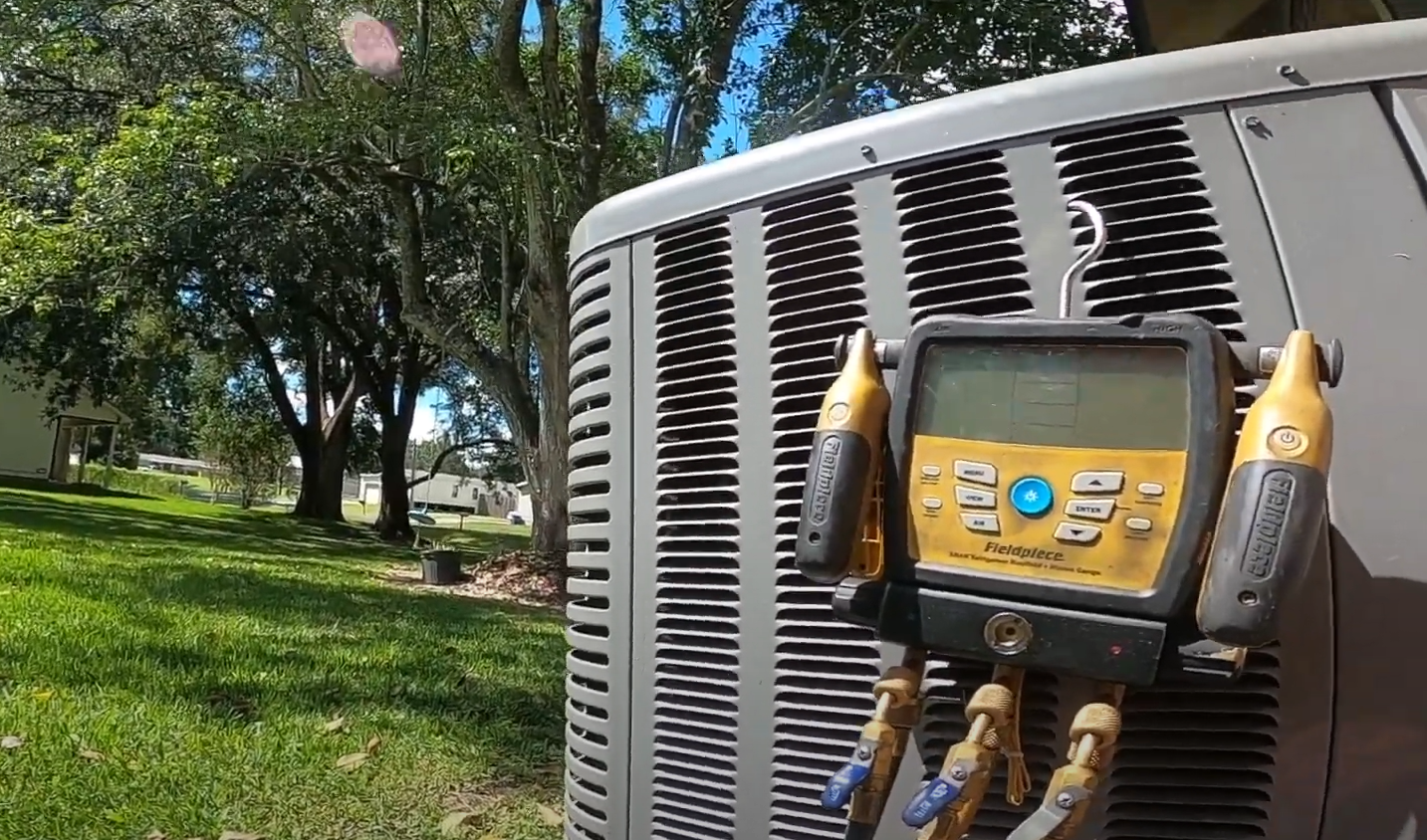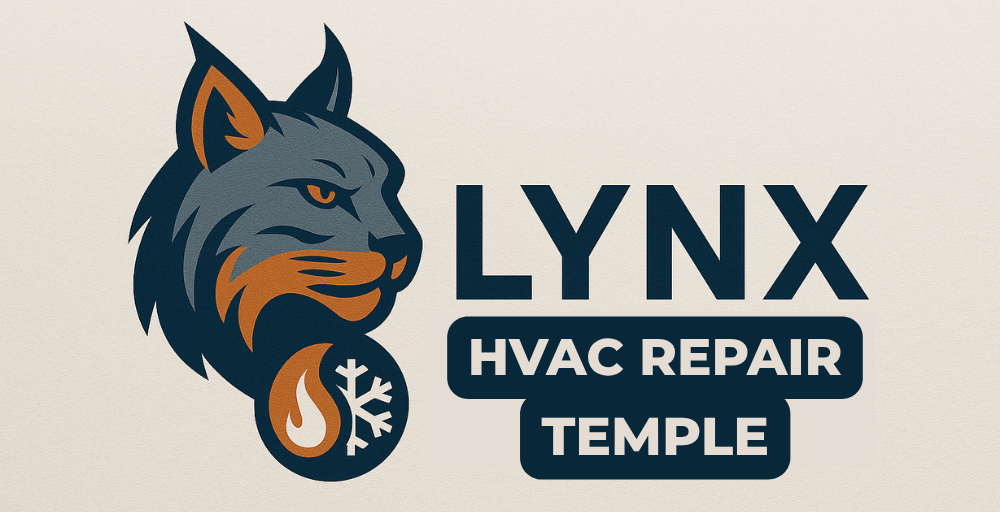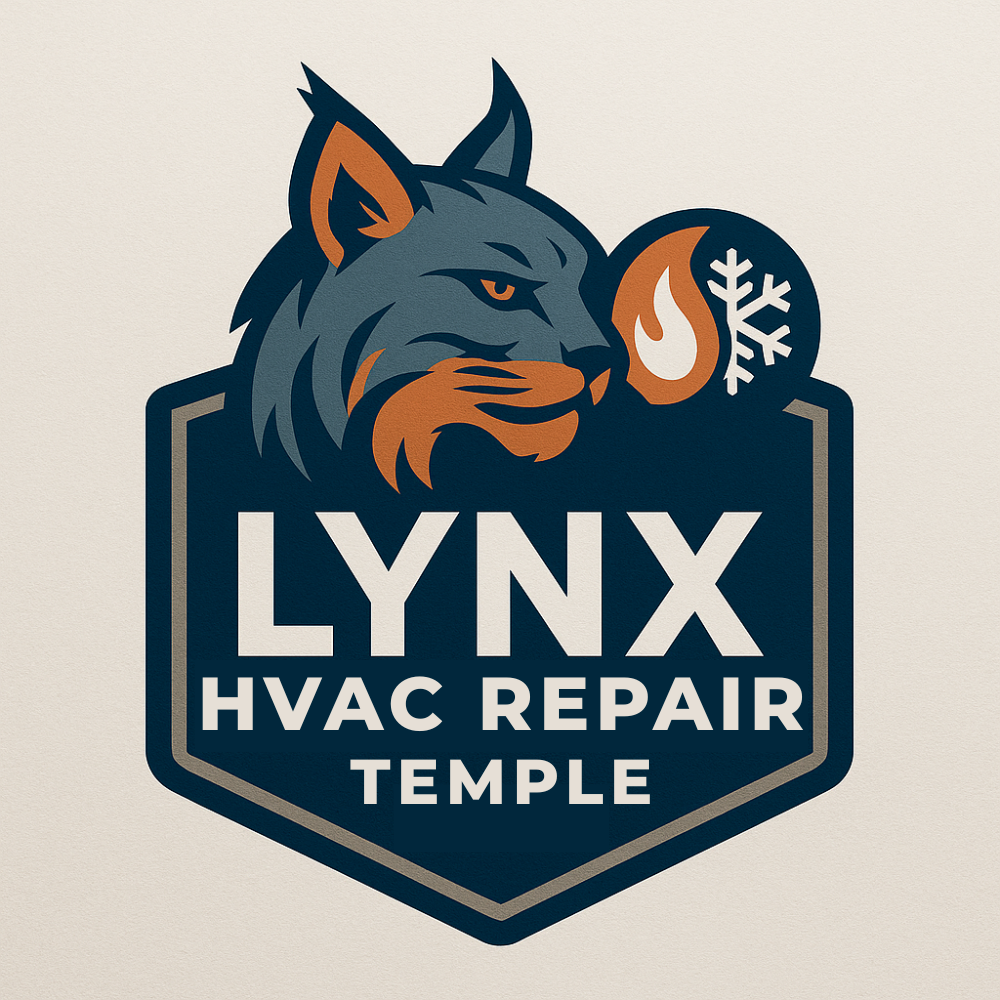Energy-Saving HVAC Solutions for Families in Midway and West Temple: Top Cost-Cutting Tips for Year-Round Comfort
Living in Midway and West Temple means dealing with Texas's intense heat and occasional cold snaps. Your HVAC system works hard to keep your family comfortable through these temperature extremes, which can lead to high energy bills and increased wear on your equipment. When issues arise, trusted HVAC Temple TX professionals can help ensure your system operates efficiently year-round.
Installing energy-efficient HVAC solutions can reduce your monthly utility costs by 20–30% while maintaining optimal comfort levels in your home. Modern HVAC systems incorporate advanced technology like variable-speed motors and smart thermostats that adjust output based on your family's actual needs rather than running at full capacity all the time.
Professional HVAC installation and regular maintenance are essential for maximizing energy savings. At Lynx HVAC Repair Temple, we help families across Midway and West Temple select and maintain systems that match their specific home layout, usage patterns, and budget requirements.
Key Takeaways
- Energy-efficient HVAC systems can significantly reduce monthly utility bills while improving home comfort
- Smart HVAC technology automatically adjusts to your family's cooling and heating needs
- Professional installation and maintenance ensure optimal system performance and longevity
Why Energy-Saving HVAC Solutions Matter for Families in Midway and West Temple
Energy-efficient HVAC systems directly impact household expenses and comfort in Central Texas. The average family in Midway and West Temple spends $2,000 annually on energy costs, with heating and cooling accounting for over half of these expenses.
Understanding Energy Efficiency in HVAC Systems
Modern HVAC systems use advanced technology to deliver more comfort while consuming less energy. A properly sized and efficiently operating system maintains consistent temperatures throughout your home.
Smart thermostats integrate with energy-efficient systems to automatically adjust settings based on your family's schedule. These devices can reduce energy usage by 10-15% on heating and cooling costs.
Variable-speed compressors adjust their output to match your exact cooling needs, unlike older systems that only run at full power. This precise control helps maintain steady temperatures while using minimal energy.
Impact on Energy Bills and Family Budgets
Local families can save $200-400 annually by upgrading to energy-efficient HVAC equipment. These savings add up significantly over the system's lifespan.
Monthly utility bills become more predictable with efficient systems. Your HVAC unit won't need to work as hard during Temple's hot summers or chilly winters.
Potential Monthly Savings:
- Summer cooling: $30-50
- Winter heating: $25-40
- System maintenance: $10-15
Benefits for Home Comfort and Well-Being
Energy-efficient systems provide more consistent temperatures room-to-room. This eliminates hot and cold spots common with older equipment.
Better humidity control comes standard with modern efficient systems. Your home stays comfortable at slightly higher temperatures in summer and lower temperatures in winter.
Indoor air quality improves with efficient HVAC equipment. Enhanced filtration and ventilation remove more allergens and pollutants from your home's air.
These systems run quieter than traditional units. Your family can enjoy peace and comfort without disruptive noise from heating and cooling equipment.

Key Features of Modern Energy-Efficient HVAC Systems
Modern HVAC systems incorporate advanced technologies that significantly reduce energy consumption while maintaining optimal comfort levels in Temple homes. These innovations work together to create more efficient cooling and heating cycles, leading to lower utility bills.
SEER, EER, and HSPF: Understanding Efficiency Ratings
SEER (Seasonal Energy Efficiency Ratio) measures cooling efficiency over an entire season. Higher SEER ratings indicate better efficiency, with modern systems ranging from 14 to 26 SEER.
EER (Energy Efficiency Ratio) rates cooling performance at peak conditions. This rating helps Temple homeowners understand how their system performs during hot Texas summers.
HSPF (Heating Seasonal Performance Factor) measures heat pump heating efficiency. Most current systems achieve 8.2 to 10 HSPF, with higher ratings delivering better energy savings.
Recommended Minimum Ratings for Temple Homes:
- SEER: 16 or higher
- EER: 12 or higher
- HSPF: 8.5 or higher
Variable-Speed Compressors and Inverter Technology
Variable-speed compressors adjust their output based on actual cooling and heating needs. This precise control eliminates the energy waste of traditional single-speed systems.
Inverter technology enables smooth speed transitions, reducing temperature fluctuations and saving energy. Systems operate at lower speeds for longer periods, maintaining consistent comfort.
These advanced components use up to 40% less energy than conventional systems while reducing humidity more effectively.
Smart and Programmable Thermostats
Smart thermostats learn your family's schedule and automatically adjust temperatures to save energy. Remote access through smartphone apps lets you control settings from anywhere.
Programmable thermostats offer customized schedules for different days of the week. Set energy-saving temperatures while you're away or sleeping.
Key Smart Features:
- Learning algorithms
- Motion sensors
- Maintenance alerts
- Energy usage reports
- Multi-zone control
Eco-Friendly Refrigerants and Reduced Greenhouse Gas Emissions
Modern systems use R-410A and newer refrigerants that don't deplete the ozone layer. These alternatives perform better than older R-22 while being environmentally responsible.
The EPA phases out harmful refrigerants to reduce environmental impact. New systems with eco-friendly refrigerants help meet these regulations.
Advanced refrigerant technology improves system efficiency. Better heat transfer properties mean less energy needed for cooling and heating.
Top Energy-Saving HVAC Systems for Midway and West Temple Homes
Modern HVAC systems can reduce energy costs by 10-40% compared to older models, making them a smart investment for Texas homeowners facing high cooling demands.
Split Systems and Their Advantages
Split systems excel in Texas climates by separating indoor and outdoor components for optimal efficiency. The latest models achieve SEER ratings above 20, significantly reducing cooling costs during hot Temple summers.
These systems offer precise zone control, letting you cool only occupied rooms. Many new units feature variable-speed technology that adjusts output based on real-time needs.
Installation costs for split systems typically range from $3,500 to $7,500, but the energy savings often cover this investment within 5-7 years.
Heat Pumps for Year-Round Efficiency
Heat pumps provide both heating and cooling, making them ideal for Midway and West Temple's mild winters. Modern units achieve HSPF ratings of 8.2 or higher, indicating superior heating efficiency.
Variable-speed heat pumps adapt their output to maintain consistent temperatures. This technology uses up to 30% less energy than traditional systems.
Advanced models now operate efficiently even when temperatures drop below 30°F, though this is rarely a concern in central Texas.
High-Performance Models: Infinity 26 and XV20i
The Carrier Infinity 26 delivers up to 26 SEER and features Greenspeed intelligence for precise temperature control. Its variable-speed operation maintains humidity levels while minimizing energy use.
Trane's XV20i matches this performance with ComfortLink II technology and up to 22 SEER. Both systems include smart diagnostics and wireless connectivity for remote monitoring.
These premium units cost between $6,000-$8,500 installed but offer the highest potential energy savings, often reducing monthly bills by 20-35% compared to 10-year-old systems.
Maximizing Energy Savings and Long-Term Value
Strategic HVAC management combines regular maintenance, system upgrades, and smart technology to create significant energy savings for Temple homeowners. Proper attention to these elements can reduce monthly utility costs by 20-30% while extending equipment lifespan.
Maintenance Best Practices for HVAC Efficiency
Clean air filters monthly to maintain optimal airflow and prevent system strain. A clogged filter can increase energy consumption by up to 15%.
Schedule professional tune-ups twice yearly - spring for AC and fall for heating. Our certified technicians clean coils, check refrigerant levels, and calibrate thermostats for peak performance.
Key Maintenance Tasks:
- Check and seal duct leaks
- Clean vents and registers
- Lubricate moving parts
- Test safety controls
- Clear condensate drains
Retrofitting Versus Replacing Older Systems
HVAC systems over 10 years old often operate at 60% efficiency or less. Retrofitting with modern components can boost efficiency without full replacement costs.
Cost-Effective Retrofit Options:
- Variable speed motors
- Smart thermostats
- Zoning systems
- High-efficiency coils
Full system replacement becomes more economical when repair costs exceed 50% of new system price. Modern SEER 16+ units can reduce cooling costs by 40% compared to older 10 SEER systems.
Leveraging Smart Controls for Optimized Performance
Smart thermostats learn household patterns and automatically adjust temperatures for optimal comfort and savings. WiFi-enabled models allow remote adjustments via smartphone apps.
Zoning systems direct conditioned air where needed, preventing energy waste in unused spaces. Multi-zone setups can save 30% on heating and cooling costs.
Advanced features like maintenance alerts and energy usage reports help track system performance and identify potential issues before they cause efficiency drops.
You might also like




